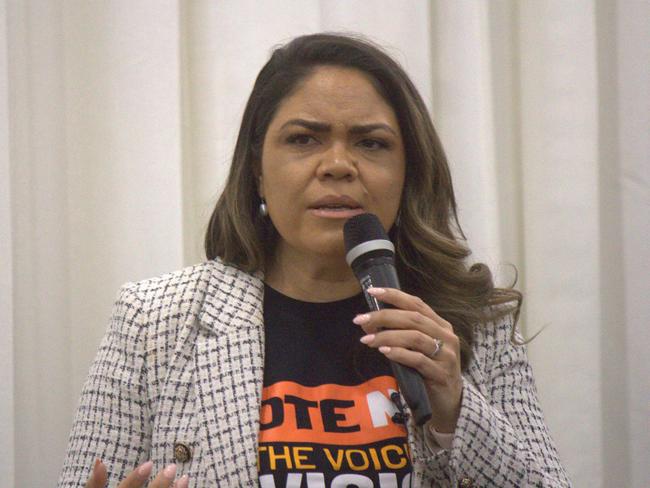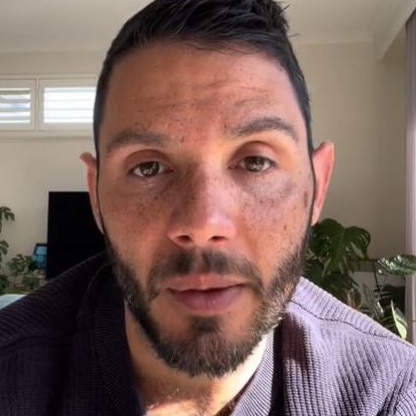Aussie professor shuts down common argument about Indigenous Voice to parliament
A professor has expertly shut down a key argument being used by many non-Indigenous Australians as an excuse to vote No in the Voice referendum.
National
Don't miss out on the headlines from National. Followed categories will be added to My News.
As the date for the Indigenous Voice to parliament referendum nears, things are heating up from both sides of the debate.
Australians will head to the polls on October 14 to vote Yes or No on whether to enshrine an Indigenous Voice to parliament in the constitution.
Voters from both camps have been extremely vocal about their stance, with many everyday Aussies using social media to explain which way they are planning to vote and why.
A common argument that is being used by some non-Indigenous No voters relates to the well-known Indigenous Australians who have come out against the referendum.
Northern Territory Country Liberal Party senator Jacinta Nampijinpa Price, independent senator Lidia Thorpe, and former politician and advocate for Indigenous affairs Warren Mundine have all spoken out against the Voice.

There are many people who have questioned why they should vote in favour of the referendum if these well-known Aboriginal leaders are against it.
But one Western Australian professor has expertly dismantled this argument, while also hitting back at the “ridiculous” myths being spread about the Voice vote.
Professor Braden Hill is a Noongar (Wardandi) man and Deputy Vice Chancellor (Students, Equity and Indigenous) at Edith Cowan University.
He told news.com.au that for every one of the “well known” Indigenous people who support the No campaign, there are thousands of Indigenous Australians who are “in support and on the public record”.
“Best available evidence shows that between 80-83 per cent of Aboriginal and Torres Strait Islander people support the Voice,” he said.
“The Voice idea came from Indigenous folk.”
Professor Hill noted that, of course, First Nations people can have differing opinions, but added it was important to “pay attention to the evidence”.
“Just finding one high profile Indigenous person to back your view is like me believing all white Australians believe what Pauline Hanson has to say,” he said.
A vocal supporter of the Voice, Professor Hill has dedicated his TikTok page in recent weeks to fighting back against misinformation being spread about the referendum and answering his follower’s questions.

One of the most common myths he has been exposing relates to claims the Uluru Statement from the Heart is longer than previously stated, with the other pages secretly covered up by Yes campaigners and the government.
The Uluru Statement was shared in 2017 and informed part of the Voice to parliament referendum by calling for a First Nations Voice to be established in the constitution.
Early last month, Sky News host Peta Credlin claimed to have “exposed” the Uluru Statement as a 26-page document instead of just one page, accusing Mr Albanese of lying.
However, it was then confirmed by the National Indigenous Australians Agency (NIAA) and the authors of the Uluru Statement, Noel Pearson, Pat Anderson AO and Professor Dr Megan Davis, that it is in fact a “one page document”.
The other pages, some that have been publicly available for years and others that were released under the Freedom of Information act earlier this year, relate to “background information and excerpts of regional dialogues that informed the one-page Uluru Statement from the Heart”, according to an NIAA spokeswoman.
Speaking about this issue in a recent video, Professor Hill believes that the attempt to “expose” the Uluru Statement really shows is the “uncomfortable” truth about what life is really like for Aboriginal and Torres Strait Islander people in Australia.
“I think people’s anger at what’s actually in the document is actually that it’s telling some truths that are uncomfortable,” he said.
“That truth is a reminder that Blackfullas were here first and that there are some uncomfortable realities about that for a lot of people.”
Professor Hill also claimed that there were people in the No camp who were trying to confuse people by farming out misinformation because they know that “it’s easier to tear something down than build something up.”
He said there is an idea that if you confuse people enough they will vote No because it appears to be the “safer” option.
Some of the misinformation that has been published online is “absolutely nuts”, the professor told news.com.au, adding that it is ultimately harmful to the Voice conversation and Indigenous Australians.
The most “bizarre” and outright “ridiculous” claim he has seen is that the Voice to parliament is “global conspiracy to have Australia stolen away from Australians”.
However, Professor Hill said it is “understandable” that some Aussies would still be genuinely confused about how the Voice will work and what a Yes vote means.
“Most Australians recognise Aboriginal and Torres Strait Islander people as the First Peoples of Australia and are fine with that being reflected in the constitution,” he said.
“The Voice is the way the vast majority of Aboriginal and Torres Strait Islander people, after more than 10 years of consultation, believe is a respectful and meaningful way to do this.
“The question you’ll be asked is if you’re cool with that Yes or No. That’s it.”
Originally published as Aussie professor shuts down common argument about Indigenous Voice to parliament





